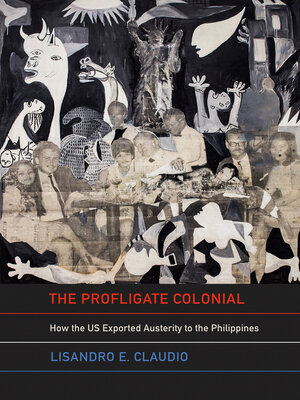The Profligate Colonial
ebook ∣ How the US Exported Austerity to the Philippines
By Lisandro E. Claudio

Sign up to save your library
With an OverDrive account, you can save your favorite libraries for at-a-glance information about availability. Find out more about OverDrive accounts.
Find this title in Libby, the library reading app by OverDrive.



Search for a digital library with this title
Title found at these libraries:
| Library Name | Distance |
|---|---|
| Loading... |
In The Profligate Colonial, Lisandro E. Claudio reveals how austerity, long before it became a buzzword of modern technocracy, was a tool of US empire.
Austerity is often praised as prudence in hard times, a responsible response to crisis. In the Philippines today, it is treated as common sense, an unquestioned commitment to a strong currency, low inflation, and fiscal restraint. Claudio argues that this orthodoxy is in fact a colonial inheritance—a legacy of American rule that cast Filipinos as reckless spenders and imposed monetary discipline as a civilizing force. At the center of this logic is the "profligate colonial," a feminized, racialized figure who wastes public funds and so requires the steady hand of imperial governance.
Focusing on key moments in Philippine economic history across the twentieth century, Claudio charts how austerity was first exported through empire, then domesticated in line with nationalist ambitions. He shows that generations of Filipino policymakers, central bankers, and intellectuals absorbed the lessons of American "money doctors," transforming what was a means to build a colonial state on the cheap into a postcolonial moral imperative. Austerity became not just policy, but an ideology that transcended political divides and reshaped the boundaries of the Philippine economic imagination.
As austerity politics rise once more in response to global inflation, The Profligate Colonial is a vital, incisive reminder of how austerity's appeal is less about economics than about a deep-rooted politics of control—one born in empire and still alive in policy today.







